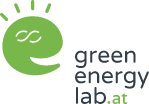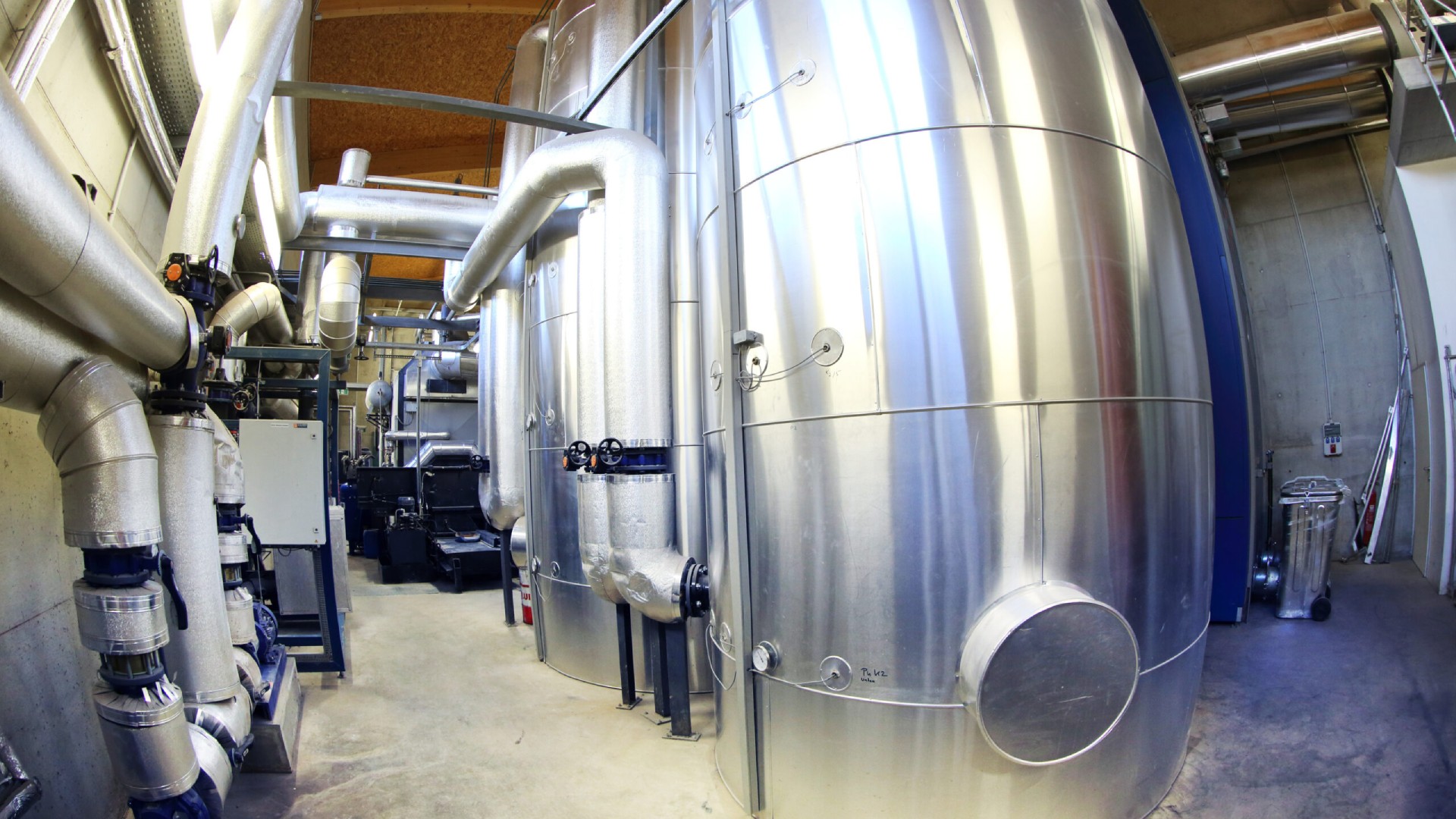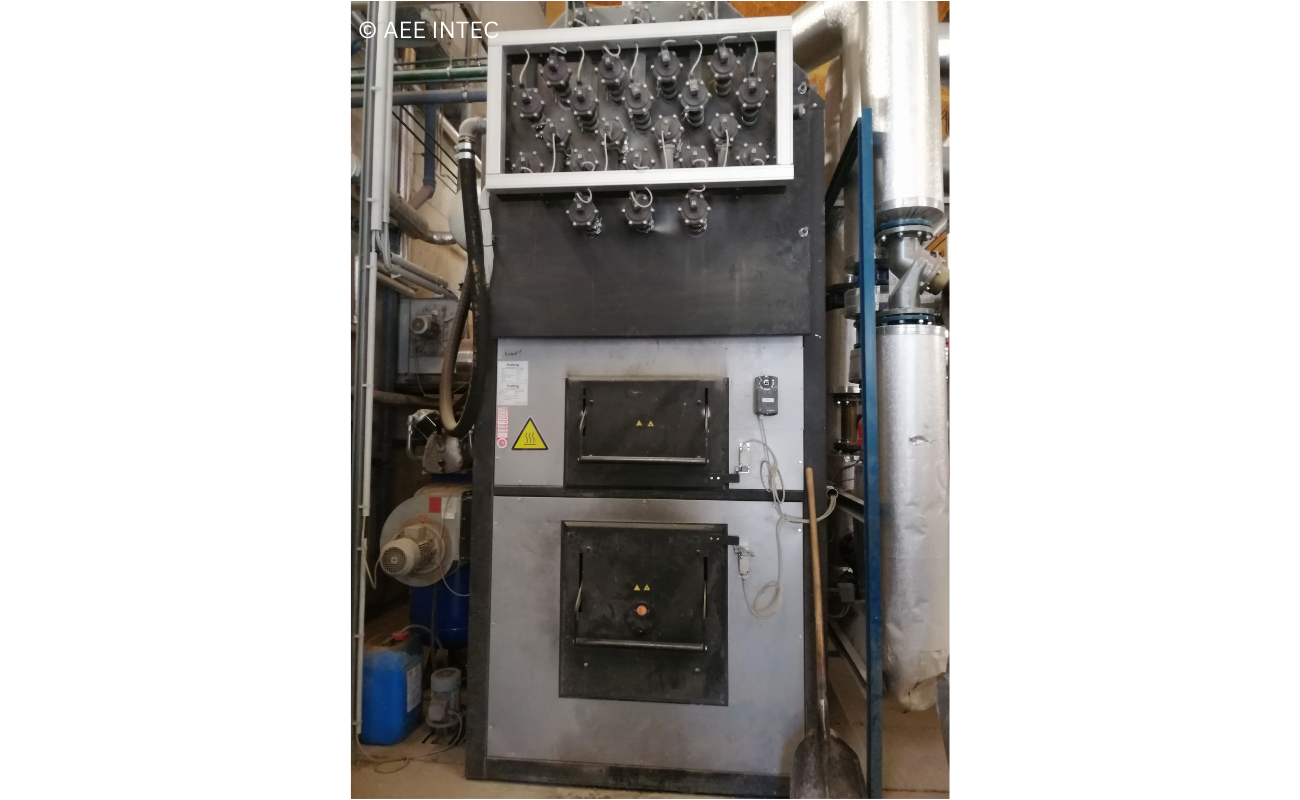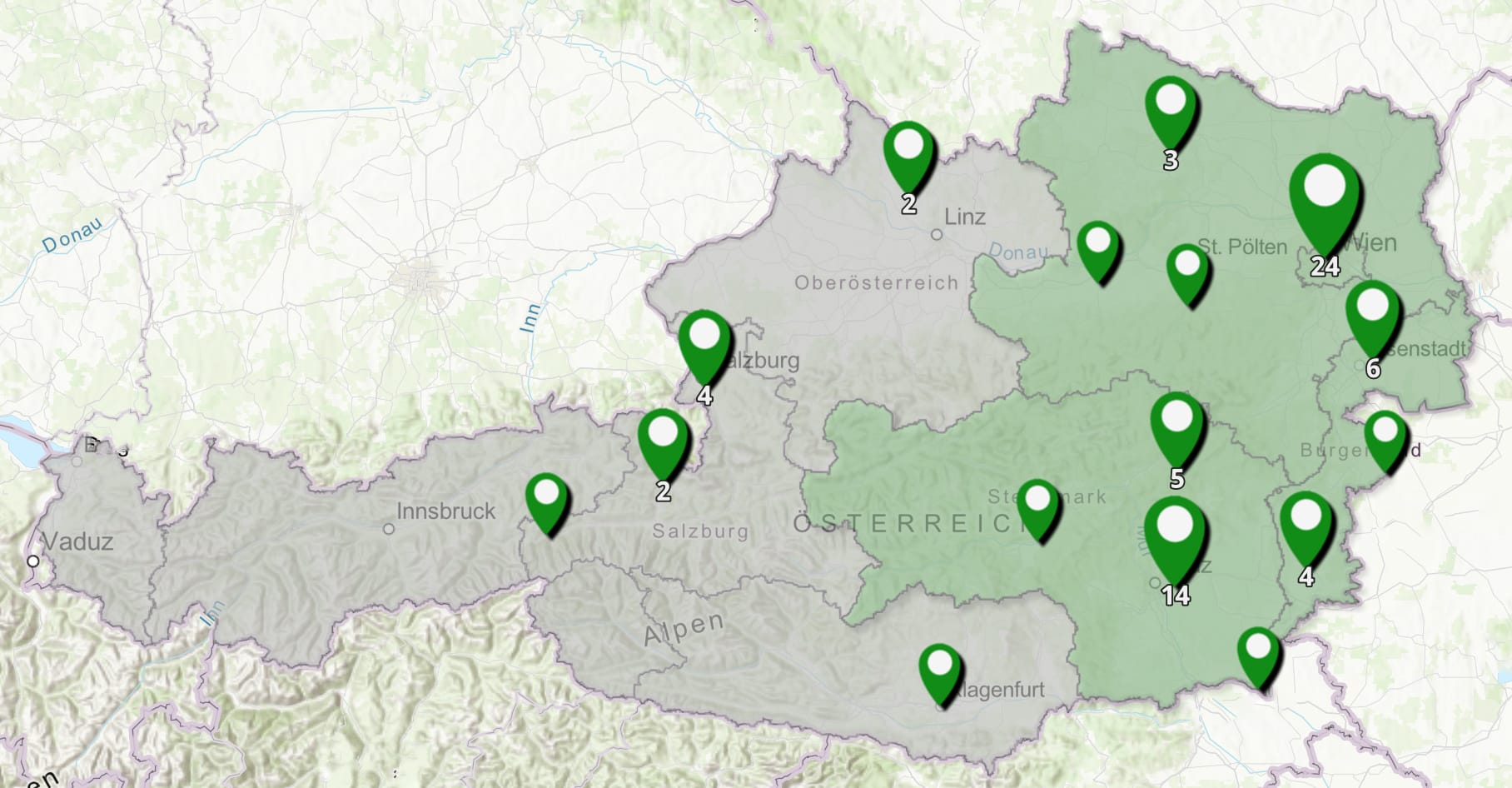BM Retrofit DEMO Kreuzstetten
The analysis and overall optimisation of the local heating network with planned network extension and densification, as well as the control and operation of the entire heating network are the subject of the investigations at the Kreuzstetten site.
The biomass heating plant in Kreuzstetten, Lower Austria, was built in 2011 and provides local heating for the site. The heating plant is operated sustainably using wood chips from the region. The biomass heating plant produces heat with a capacity of 2 x 1 MWth and electricity with a peak capacity of 88.5 kWp. The local heating network currently supplies about 140 consumers with a network length of 8.7 km and a heat demand of about 5.3 GWh/a.
In the BM Retrofit project, the potential for optimisation is examined in detail and in a structured manner. Modern and sustainable modernisation concepts will be developed for Kreuzstetten in the form of a retrofit. The measures developed will be tested and validated at the Kreuzstetten biomass heating plant to ensure that they can be quickly replicated in practice, so that the findings can be applied to other sites in the future.
Objective of the project BM Retrofit Kreuzstetten
The BM Retrofit project in Kreuzstetten pursues several objectives in order to exploit the optimisation potential of the biomass heating plant. The project also aims to expand and densify the network.
What is to be achieved? On the one hand, the control and operation of the biomass boilers and the entire heating network will be improved, especially in summer. On the other hand, the control and operation of a large consumer that needs the heat produced in Kreuzstetten for its drying plant for agricultural products (including pumpkin seeds) will be optimised. Furthermore, the integration potential of heat pump systems and absorption heat pump systems will be investigated.
Approach and methodology of the project BM Retrofit Kreuzstetten
The biomass boilers, the boiler operation and the heating network will be subjected to a sound technical analysis in order to optimise the local heating system as a whole. Subsequently, based on the results, the expansion and densification of the network as well as the control and operation of the entire heating network will be made sustainable.
To this end, a comprehensive analysis of the heating system was carried out in the first project year, 2022. The evaluation using the “BM Retrofit System Check”, which will also be used at other locations in the future, showed that the low summer load with correspondingly high heat losses is a major challenge for the system.
In addition, a detailed analysis of boiler operation was carried out over a period that included both part-load and full-load operation.
The results of the analyses are now being used to develop measures for boiler load management and storage management. The multi-stage approach will be implemented in the following steps:
Step 1: Improvement of the rule-based load and storage management.
Step 2: Extension of the rule-based load and storage management with forecasting methods.
Step 3: Development of an optimisation-based load and storage management system (energy management system) to take account of future expansions.
As part of the overall optimisation of the local heating network, the current state of the heating network was also analysed in terms of temperature load, pressure load and bottlenecks using various tools and instruments. Based on this, expansion scenarios are examined in thermo-hydraulic simulations. These show the potential for additional customer connections and identify bottlenecks in the heating network.
In summary, the BM Retrofit project at the Kreuzstetten site is investigating how a holistic optimisation of the local heating network can be achieved. Other biomass heating plants can also optimise their plant operation on the basis of these findings.
Links:
- Flagship Project BM Retrofit
- Report Insight Talk Innovative Heating Solutions
- BM Retrofit solutions for heating network operators >> information sheet (german only)
- BM Retrofit solutions >> optimised display for mobile phones (german only)
The following model solutions were being developed in the BM Retrofit DEMO Kreuzstetten project:
Holistic modernization concept for biomass-based District Heating systems
Media reports on the project
Increased efficiency and decarbonization of heating networks
Around 50 percent of Austria's energy requirements are needed in the heating sector, whereby the current level of supply with fossil fuels is around 60 percent. Half of Austria's district heating supply alone is currently still based on fossil fuels. The BM Retrofit project is concerned with the development of highly efficient, biomass-based district heating systems as the basis for a climate-friendly heat supply.
To the articleIncreased efficiency and decarbonization of heating networks
As part of the practical BM Retrofit research project, holistic modernization and expansion concepts for existing biomass-based heating networks are being developed. The developed elements and solutions are implemented in various biomass-based district heating networks, so-called demonstrators, and analyzed with accompanying data evaluation and holistic system validations including life cycle and value chain analysis.
To the article





